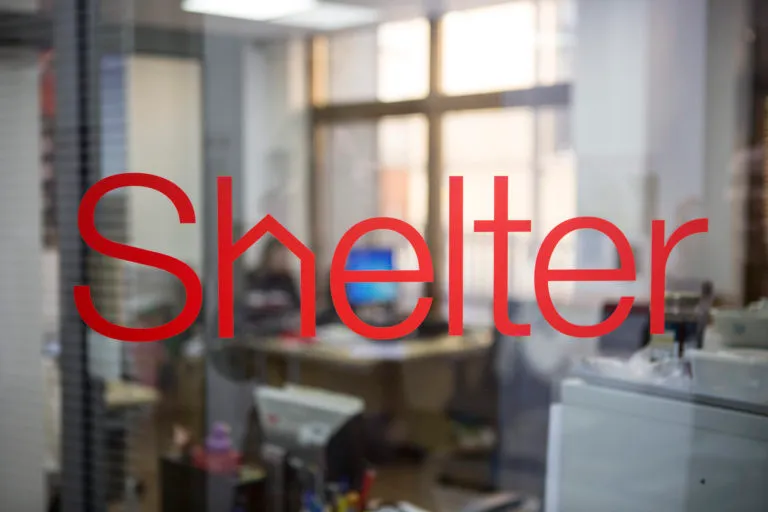A day in the life of a resettlement worker
Published: by Guest blog

Kevin is one of our Advice Support and Guidance Workers (ASG) in the North East. Here, he tells us about the impact coronavirus (COVID-19) and remote working has had on his day-to-day work, and what lessons he’s taking forward in terms of his work in supporting clients released from custody to secure settled accommodation and access ongoing support for complex needs.
Working through unprecedented times
‘I was actually one of the first to go into lockdown at the start of March 2020. I had been on holiday in Italy and had to self-isolate for 14 days when I came back home, as my wife and son are key workers. I therefore had to adapt pretty quickly to this new way of working remotely.

‘As an ASG, my role is to support clients released from custody into accommodation, work with them to identify their needs and goals, and provide ongoing support. Supporting people who are subject to probation supervision in finding and retaining settled accommodation is key in preventing re-offending and achieving successful re-integration into the community. The work my team and I undertake is fundamental to Shelter’s strategic aim of supporting those in housing crisis. We help people end a negative cycle of offending, prison, release, and then back again due to lack of a stable base to call home.
‘We’re continuing to provide crucial support to our clients, and have faced some new challenges – but also seen some surprising positives come out of this unprecedented situation.
My day-to-day
‘My day starts with catching up on emails and admin – such as following up to see if local authority Housing Teams have been contacted on behalf of a client, or checking if applications have been approved. Then from about 10am – 5.30pm, I have appointment calls with clients. I also respond to any urgent requests; working with solicitors to advocate for clients and taking action where necessary with local councils.
‘We used to see clients once at least every 28 days (more frequently for urgent or complex cases), and now most of us are calling to check in on clients once at least every two weeks. This has been possible now we’re contacting everyone by phone and text, as before we had a large geographical area to navigate fitting in everyone’s face-to-face appointments. Clients have also felt more able to open up and disclose more information over the phone, with calls lasting to up to 45/60 minutes. Many are feeling the strain of coronavirus and lockdown on their mental health, and so are more receptive to a chat when I call to talk about progress than they previously were in face-to-face settings. This means that we’re seeing more positive outcomes for clients, since the more information we have, the better equipped we are to support and address any issues they may have.
‘I am a people person, and I’ve found it challenging not to be able to meet for a coffee and chat with colleagues and clients in person to build those relationships. However, my team have been brilliant and we have regular check-ins to ensure we’re all doing OK. We’ve also utilised a well-being action plan that incorporates reflective practice. This gives us a chance to reflect on what’s gone on, highlight good practice, and identify where there’s room for change. The team feels supported and we regularly have open, honest conversations.
‘Before the working day is finished, I ensure I’ve wrapped up any actions and sent any emails needed to help move applications and support forward.
Moving forward
‘What I would take forward from this experience is more regular phone contact with clients, to establish trust to enable them to feel more comfortable and willing to disclose any needs they may have. This helps us help them achieve positive outcomes and ongoing support. I would also recommend teams adopting reflective practice and well-being action plans, so staff feel supported and that they’re not neglecting their mental health.
‘However my main recommendation would be for the government to ensure there is more accommodation available to support clients ahead of release. In Northumberland, like many places across the country, there is a dire lack of suitable accommodation – with only four hostels available across the whole region. All other requests go through to the councils, which are often stretched to help everyone who needs it. Additionally, in areas such as Berwick and Hexham, private sector rents are high and out of sync with the Local Housing Allowance (LHA) by amounts completely impossible for people to make up.
‘At Shelter, our 15 years’ experience delivering resettlement services to people in contact with the criminal justice sector has meant we’ve provided expert support and helped many people. However, we know this isn’t enough to stem the tide of homelessness in the housing crisis, especially when it is expected to get even worse due to coronavirus. We need to build more social housing. This would not only help the millions currently on social housing waiting lists or in unaffordable private rented accommodation, but also enable our clients subject to probation supervision.
‘If they are able to find and retain a settled, suitable home, they can then focus on accessing support to rebuild their lives – which we know would mean less re-offending, and an end to the negative cycle that we see so many of our clients in.’
If you’d like to find out more about our work with the criminal justice system, please email ceri_desmond@shelter.org.uk. You can also download our 19/20 impact report for more information on the outcomes and successes of this important work.